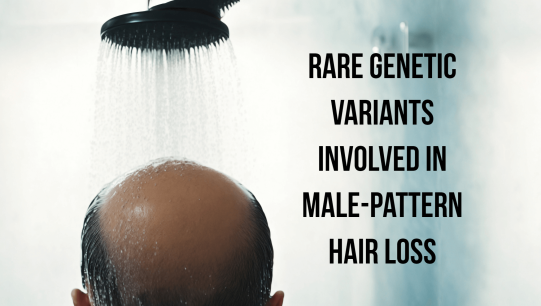
International clinical trials led by the University of Melbourne have confirmed that two new drugs are safe and effective.
This debilitating disease, which causes patchy hair loss and affects 147 million people worldwide, has had no effective treatment. Approximately 15 percent of people with this condition experience total or universal hair loss.
A randomized, placebo-controlled Phase 2a trial evaluated the efficacy and safety of two drugs known as Janus kinase (JAK) inhibitors, PF-06651600 and PF 06700841, for alopecia areata over 24 weeks.
The treatment program confirmed that both drugs were effective, well tolerated by patients, and safe. Although promising, the results have not yet been peer-reviewed or published.
Professor Rodney Sinclair of the Department of Dermatology at the University of Melbourne presented the results of this study at the 27th European Congress of Dermatology and Venereology in Paris on Saturday, September 15.
According to Professor Sinclair, the new molecule used in the investigational drug has also been tested in atopic dermatitis, but this is the first trial conducted in alopecia. Professor Sinclair said the latest results could be life-changing for alopecia patients.
This is a game changer,” he said. Both drugs performed significantly better than placebo in patients with total and alopecia areata. Both JAK inhibitors were safe and well tolerated.”
According to Professor Sinclair, the new drugs inhibited the progression of alopecia and enabled hair regrowth.
Other drugs targeting this pathway have been used to treat rheumatoid arthritis and blood disorders. ‘Some of these drugs have also been used to treat eczema, psoriasis, and other inflammatory and autoimmune diseases.’
According to Professor Sinclair, several patients in the study experienced adverse events, including infections, gastrointestinal, and skin and subcutaneous tissue problems; two patients experienced serious adverse events (rhabdomyolysis), but the patients were asymptomatic and recovered completely after discontinuing the medication. No serious infections or reactivation of herpes zoster were observed.
The initial clinical trial has been completed, but appropriate patients may be eligible to participate in a Phase III clinical trial scheduled to begin within the next 6 to 12 months. Patients may check with their dermatologists to determine eligibility.
The clinical trial is in Victoria, New South Wales, Queensland, Manitoba, Ontario, Alabama, California, Colorado, Connecticut, Florida, Georgia, Illinois, Indiana, Massachusetts, New York, Oklahoma, South Dakota and Utah, Virginia clinics and universities.
Pfizer sponsored and collaborated on the project with patients 18 to 75 years old with chronic, moderate to severe alopecia areata affecting the scalp.
What are Janus kinase inhibitors and how are they used to treat alopecia?
Autoimmune diseases, allergies, and even malignancies are often the result of persistent imbalances within complex immune mechanisms. Underlying these complex processes is the action of cytokines, which play an important role in the regulation of immune responses and inflammatory processes.
Several studies have reported that various cytokines and the receptors and molecules involved in their chemical reactions are associated with immune-mediated and inflammatory diseases. Therefore, the regulation of cytokine function has become a focus of intensive research and drug development. Drugs that target cytokines and their receptors have become the main weapon in the physician’s arsenal to address autoimmune diseases such as alopecia areata.










Comment